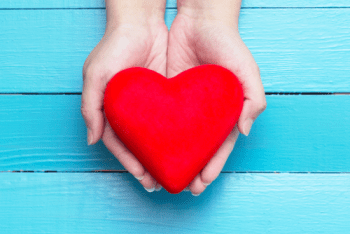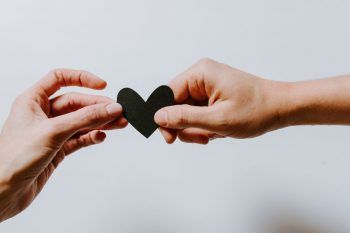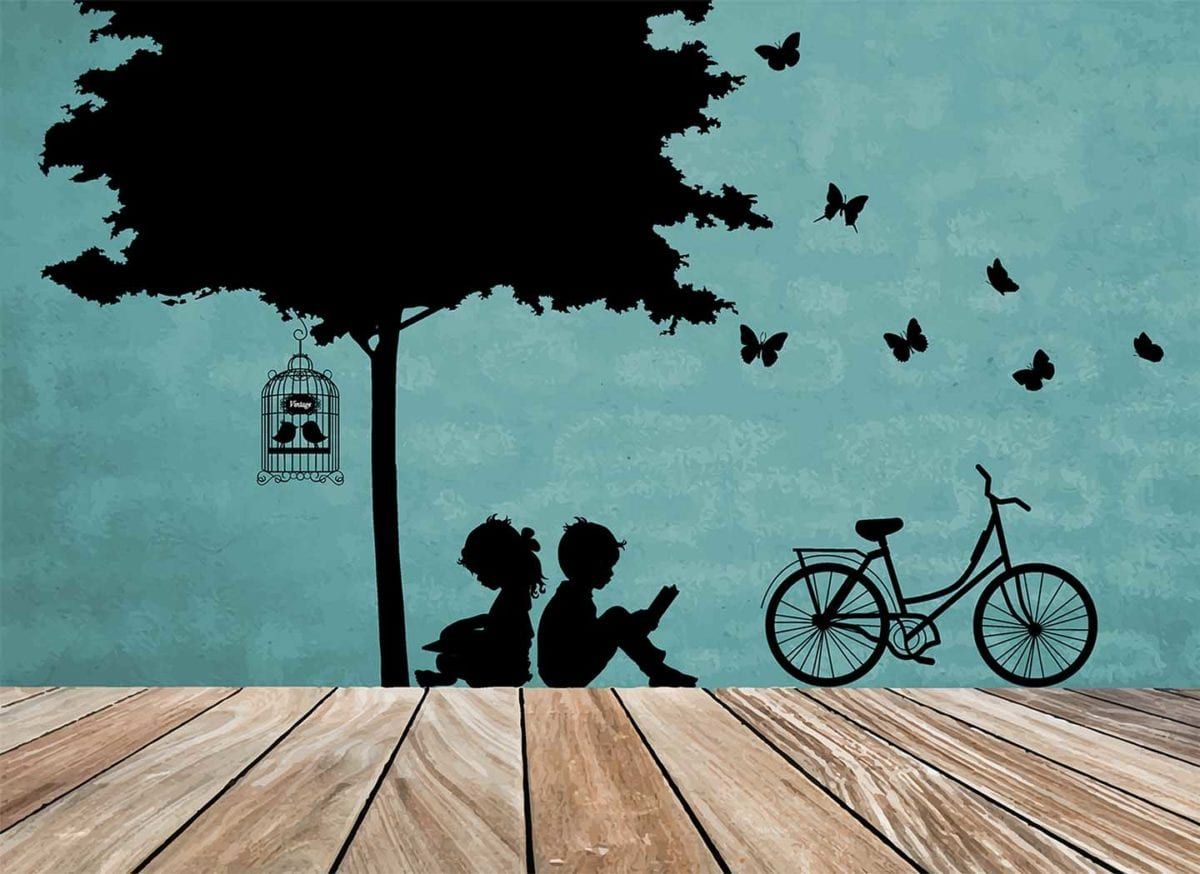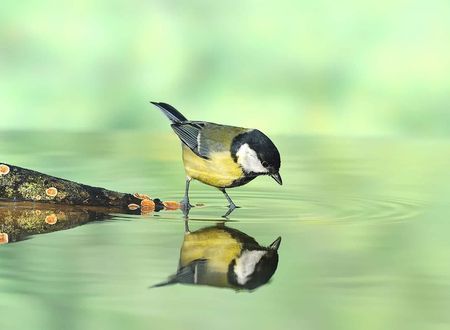So often I meet people who tell me they don’t get along with their partners. “Our views don’t match, our habits, our goals are different, there’s no compatibility,” they say. Often the man is looking for more freedom and personal space while the woman wants more security and quality time (sometimes, albeit rarely, the reverse is also true).
When two people don’t get along, it doesn’t mean that they can’t get along. It may require a great deal of work (and patience) but if both are committed, it can work. Compatibility in love is not the norm though. It’s uncommon. Chances are two people wouldn’t even be attracted to each other if they were alike because the law of nature is that opposites attract each other.
While sometimes we get along with certain people better than others, the truth is, love in a true relationship grows over time. In a sincere relationship, differences and harmony arise naturally. They go hand in hand.
I’m not talking about whether he knows that whites and coloreds are washed separately or if she knows that watching a game of cricket is a religious ritual for him. While issues like these affect the quality of a relationship, I’m referring to something more fundamental — our expectations and understanding of love.
Often when we think of love, we expect there will be no setbacks, we’ll never be hurt again and life will shape itself according to our dreams. Love, in fact, is the opposite.
In the words of C.S. Lewis, “To love at all is to be vulnerable. Love anything and your heart will be wrung and possibly broken. If you want to make sure of keeping it intact you must give it to no one, not even an animal. Wrap it carefully round with hobbies and little luxuries; avoid all entanglements. Lock it up safe in the casket or coffin of your selfishness. But in that casket, safe, dark, motionless, airless, it will change. It will not be broken; it will become unbreakable, impenetrable, irredeemable. To love is to be vulnerable.”
It’s impossible to be completely invulnerable in love. And, this vulnerability is what makes most relationships challenging (and rewarding). Because, when you are vulnerable you are not yourself really. You tend to say or do things you didn’t mean to. You end up making wrong moves. What to do? Obviously, you can’t close yourself to love, lest life becomes unbearable. And you can’t leave yourself fully vulnerable, lest you be hurt repeatedly. There’s a middle way, there’s hope. Let me give you the golden rule of love:
Don’t hurt back when you are hurt. Let the dust settle after the storm and then express yourself non-violently, compassionately. I call this love. Since, if your love is true, the storm will pass.
Why shouldn’t we hurt back when we are hurt? Because love is not just a feel-good feeling; that’s easy to have for the one who cares about you. To want someone desperately is not love either. Everyone wants a loving partner. To express that you love the other person is not love. Even a parrot can rant for hours. No doubt, these feelings, desires, and words also make up love. But, these are more like symptoms of love. For, love, in its own right, sits way above all these.
The only true way to see the depth of anyone’s love is to see their behavior. Love is behavior. It’s attitude. If our behavior towards the other person does not display sincerity, understanding, empathy and care, it is not love. Maybe pseudo-love at the most.
In attachment, you mostly value what you care about. In love, you care about what the other person values. This is the fundamental difference between thinking you love someone and actually loving them. This kind of love is neither easy nor common though. Then again, you only find a handful of diamonds after scouring tonnes of soil. You dig, grate, sieve, filter, wash for days, weeks, and months before you come across a gem in the mine. Love is that diamond in the mine of relationships. There are going to be challenges to sift through before you can get your hands on the gem.
Having a partner who resists you and challenges you can be a good thing, in fact. They keep you real, keep you grounded. You learn to accept and work on your differences. Love is not a competition or a race. It is not a battle where one person is always stronger or better than the other.
Have you noticed that a wedding ring only has one solitaire? The little baguettes and metal enhance its beauty. Sometimes, you be the solitaire in your relationship and at times, let the other person be. Sometimes you are in a supporting role and other times you are in the lead role. This is the basis of long-lasting relationships. If you always aim to have your way, soon there’ll be no way left.
Mulla Nasrudin had an argument with his wife. Fearing her wrath, he rushed to another room and locked himself in.
“Open the door!” the missus yelled.
“No!” Mulla said terrified, holding on to the doorknob harder.
“Open it!” she repeated banging on the door. “Do as I say or you are dead!”
“No! I won’t do as you say,” he shouted. “I’ll show you who’s the master of the house!”
In love, no one person is a master, for, between you, love, and her, love alone is the master. When two people are in love, they follow ‘love’. In that devotion to love, in that vulnerability lies the greatest security. The mind may reject this notion but the heart knows. That is why, you get hurt, and yet you don’t stop loving. You are hurt again and yet you love again. This is love, this is life.
Love, in its truest sense, can only be experienced when you don’t hurt back when hurt, when you are mindful of your thoughts, words, and actions. In such a scenario, you rise above negativity and petty emotions. The one who is blinded by his (or her) own desires, or driven by their ego (and not goodness) is unable to fall in love.
In the same pond where fragrant lotuses attract honeybees and butterflies, a frog, oblivious to the beauty and majesty, sits and croaks non-stop. You can be the lotus, the bee, or the frog. Choose carefully, lovingly. Life has little meaning without love.
Peace.
Swami
Editorial Note
Our deepest fear is not that we are inadequate. Our deepest fear is that we are powerful beyond measure. It is our light, not our darkness that most frightens us.
– Marianne Williamson, spiritual leader and author
To love is to step into the light. The more we suppress our natural tendency to love, the more emotionally numb we become. Emotional numbness is lovesickness.
Lovesickness: it is a very real condition that produces negative feelings in a person deeply in love when their love is unrequited. There are physical symptoms too: loss of appetite and insomnia being the most common.
Do these symptoms sound familiar? That’s because we’ve all experienced lovesickness at some point or another when we’ve had our hearts broken.
How to cure lovesickness, you ask? Well, there’s only one surefire method.
Lean into it. Accept the pain, accept the situation and most importantly, accept your feelings.
Acceptance is healing.
Otherwise, we run the risk of descending into limerence. And what is limerence?
In simple words, obsessive love.
Course
Art of Meditation
Free yourself from suffering and live life to the fullest. Learn the yogic technique of meditation in 4 days (and master it over a lifetime)
Explore the following FAQs for more on the world of love and heartbreak.
And though the symptoms of lovesickness may be many, they all share a single cause and a single cure: you.
– Tonya Hurley, an American writer
1. How do I get over heartbreak?
Stop making.
In the act of making, we have come to see life as something we make. As if it’s something we manufacture. The truth is we don’t. The moment we start seeing life as something we flow with as opposed to something we have to make, our perspective changes naturally.
The unnecessary struggle takes a back seat and you become increasingly aware of where you need to surrender versus when you ought to take charge.
In the words of Parker Palmer, “We do not believe that we “grow” our lives — we believe that we ‘make’ them. Just listen to how we use the word in everyday speech: we make time, make friends, make meaning, make money, make a living, make love.”
The more you “make”, the more the struggle. Let go – in love and in life.
And witness The River of Life begin to flow beautifully.
2. Why is love such a big deal?

If I were to pick the most important word in the dictionary, without a moment’s hesitation, I would pick love. The greatest and most sublime of all emotions is pure love. Its profundity renders it unjust for love to be merely classified as an emotion, it is a state of being, a transcendental state at that.
The more firmly you are situated in love, the greater the bliss; such bliss that is immanent in you will start emanating from you.
Pure Love is innate in everyone. It is the cause of your existence and the basis of your being. It is often misplaced at the same time in most people. Love when misdirected takes the form of attachment and when mispositioned, it promptly becomes limerence, an obsession.
Until such time that you turn inward completely, you can make an effort to discover your present state of love. Are you Living with Love or not?
3. Why is getting hurt easier than healing from the hurt?
Someone asked me an interesting question the other day. She said, “Why is it that we get hurt easily but it takes forever to get healed? Even in an old relationship, the other person can hurt our feelings and sentiments in practically no time whereas it takes an eternity to get over them?”
It’s worth thinking about. Why is feeling pain easier than forgiving or forgetting? After all, who wouldn’t want to forget their pain? If everyone could forgive and move on, they probably would. But, they can’t. Why?
4. How do I let the love of my life go?
For each of us, there comes a time to let go. You will know when that time has come. When you have done all that you can do, it is time to detach. Deal with your feelings. Face your fears about losing control.

Gain control of yourself and your responsibilities. Free others to be who they are. In so doing, you will set yourself free.
Excessive clinginess (lack of personal space in a relationship) and/or undue fear (not being able to voice your feelings because the other person either reacts violently or ignores what you have to say) are the classic signs of a toxic relationship.
And in such circumstances, you go through three emotions or roles – The Karpman Drama Triangle.
5. Why am I scared to let go of the person I love?
The human mind enjoys attachment. It likes being yoked, being tied to something because if it is let loose, it does not know where to go.
It’s a universe out there. The secret is where you want to direct your attachment, is your decision.
The video below speaks about why we fear letting our attachments go – and these include the people we love deeply.

Timeline:
- 0:28: The human mind enjoys attachment
- 1:52: Why we fear letting go
- 3:45: Codependency
A GOOD STORY
There were four members in a household. Everybody, Somebody, Anybody and Nobody. A bill was overdue. Everybody thought Somebody would do it. Anybody could have done it but Nobody did it.
Don't leave empty-handed, consider contributing.It's a good thing to do today.









Comments & Discussion
17 COMMENTS
Please login to read members' comments and participate in the discussion.